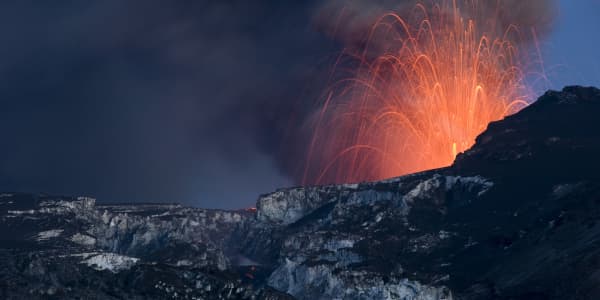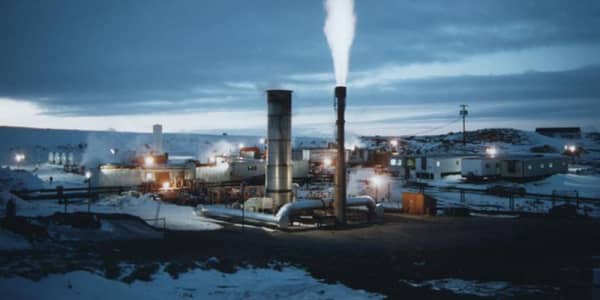In coming up with a list of the most influential corporate executives in the past 25 years, I believe the ultimate winners should be people who became such remarkable instruments for change that their contributions ultimately transformed their respective companies, industries and the world economy.
For that reason, I believe two men have been sorely overlooked in the list of 200 candidates for CNBC 25 contenders: Lee Raymond, the 75-year-old former CEO of Exxon Mobil, and George P. Mitchell, the founder and CEO of Mitchell Energy and Development who died in July 2013 at age 94.
(Read more: Vote: Who mattered? Who didn't?)
These are men who not only made tremendous contributions to their industry, but helped transform the entire global energy landscape. They are at the top of my list. Here's why:
Simply put, Lee Raymond built ExxonMobil into an oil powerhouse
He started his career at Standard Oil/Exxon in 1963 and worked his way up the ranks, becoming CEO of Exxon in 1993. He led the company through its 1999 merger with Mobil, making ExxonMobil the world's largest publicly held oil company at the time.
When Raymond retired in January 2006, ExxonMobil had annual revenue of $371 billion and net income of $36.1 billion, a record in U.S. corporate history. Exxon's earnings were greater than the combined profit of the next five largest public companies ranked by revenue. Investors cheered as ExxonMobil's stock soared about 300 percent during his time at the helm.
(Read more: Berkshire Hathaway takes major stake in Exxon Mobil)
Raymond is often recognized for his record of financial discipline and operational management as Exxon CEO, but he also saw the company through one of its most difficult periods. In 1989, the Exxon Valdez hit a reef off the Alaskan coast and spilled 11 million gallons of oil. Until BP's Deepwater Horizon explosion in 2010, the Exxon Valdez disaster was the largest oil spill in history. The cleanup took three years.
(Read more: Chart of the Day: Natural gas investing)
While there is constant debate today about the impact of regulation on the growth of the energy industry, the fact is that laws and regulations that were adopted in the wake of the Exxon Valdez spill have likely prevented similar incidents from occurring, saving lives and preserving environments around the world.
Raymond led the company in the aftermath of one of the greatest corporate disasters of all time and helped it grow to be the world's largest publicly traded company.
George P. Mitchell, the father of fracking
His innovation and persistence sparked a natural gas revolution and ushered in an energy renaissance. Mitchell introduced a game-changing technique into an industry that was garnering little attention a decade ago. In the 1980s and 1990s, Mitchell Energy tried out different techniques of hydraulic fracturing, or "fracking," in the Barnett Shale in Texas, and eventually found a way to extract natural gas from these hard rock formations. The new approach has led to a natural gas boom in the U.S., and the technique has been adopted around the world.

Some have said his work in combining hydraulic fracturing techniques with horizontal drilling was as groundbreaking to the exploration of natural gas as the commercialization of the integrated circuit was to the electronics revolution. Pulitzer-prize winning author Daniel Yergin, who devoted an entire chapter to Mitchell in his book "The Quest: Energy, Security and the Remaking of the Modern World," calls him the "Steve Jobs of energy."
Son of a Greek goat herder, Mitchell grew up poor in Galveston, Texas, worked his way through Texas A&M University waiting tables and grew a one-room oil and gas business into Mitchell Energy and Development, a Fortune 500 company, which (gratefully) focused more on natural gas than oil. Mitchell's pioneering work in natural gas drilling has helped to create thousands of jobs and helped revive American manufacturing.
Fracking's effects on the environment are hotly debated. Critics question its effects on water supplies, while advocates argue that the abundance of cleaner natural gas has turned utilities away from coal and toward natural gas to fire up power plants.
Horizontal drilling and hydraulic fracturing in shale rock in Texas, Pennsylvania and North Dakota has led to soaring U.S. natural gas and oil production. As a result, the International Energy Agency has predicted the United States will surpass Russia and Saudi Arabia as the world's top oil producer by 2015 and be close to energy self-sufficiency in the next two decades.
(Read more: Tap on US oil exports to Europe opens)
—By CNBC's Sharon Epperson. Follow her on Twitter @sharon_epperson.





